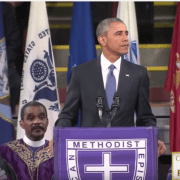I am reliably informed, by my 14 year old daughter, that “you’re too old for social media. Who would want to see what you’re doing?”
Who indeed? Heaven knows half the time even I don’t.
Never-the-less social media is here to stay and anyone in a position of authority and power, be that in a business or in government, needs to understand a few rules about how and when to engage and, perhaps even more importantly, when to stay clear.
Let’s start with the obvious. Ashley Madison.
Surely the rule around that particular site should have been obvious. If you want to conduct a clandestine affair it is probably not wise to advertise your desire to do so in the digital equivalent of the town square.
Yes, the site administrators will assure you that confidentiality is their guiding principle but you are on a public communication platform. It is most likely that the aforementioned 14 year old possesses the skills to ensure that your confidential information is shared with the rest of the English speaking world.
So the rule is: Private is not on the net.
Now for something a little trickier. Personal social media presence impacting on professional lives.
An example:
You have recently started a new relationship with someone from your office. The two of you decide on a romantic getaway in scenic Tasmania, no doubt to study the plight of the Tassie Devil. Your new squeeze posts lovely images of your trip on her Facebook page. All her mates are chuffed for her.
Trouble is you are a federal government minister and one of those images turns up on the front page of The Australian, years later, to highlight the hypocrisy of your indignation at another parliamentarian’s profligacy with the public purse in taking unnecessary helicopter rides. Come on down Tony Burke.
The rule here is just as important for business leaders as it is for politicians: If you are in a position of power and in the public eye (even if it is a limited industry specific public) you need to carefully consider your need for a Facebook or Twitter, or other social media presence, and what you post.
We have lost count of the number of careers ruined by an undisciplined Tweet or Facebook faux pas.
If you are a captain of industry, a community leader, politician or media personality or even if you’re just in a career that requires a degree of social sensitivity, not only should your social media presence be very circumspect but those of your significant others should be as well.
I’m looking at you Eddie McGuire, Mark Latham, Anthony Wiener, PR exec who tweeted that she hoped she did not get AIDS in Africa, “…no wait… I’m white”
In today’s world the personal can also rapidly impact on the collective and corporate. Think of the young KFC staff who thought it would be funny to post pictures of themselves bathing in the chicken fryers they were cleaning out. If the CEO needs to be social media savvy then most certainly there is a need for a staff social media policy in any organisation with a public interface.
Now we come to brands, corporations and government bodies on social media.
Even trickier.
A recent episode of the ABC satire Utopia featured an exchange that holds more truth than most would credit.
When talking about launching a major new road tunnel project the group discussed choosing a name for the tunnel-boring machine. When asked why a tunnel-boring machine needed a name the straight-faced answer was “for its Facebook page”. One can only imagine the value of such a Facebook page and the fans that ‘Churro’ (that’s the name they chose, because the machine came from Spain) would attract.
While the Utopia gag illustrates a comical waste of time and effort on social media. There are myriad examples where unnecessary, inappropriate and/or poorly timed and ill-thought-through social media presence has backfired, spectacularly.
Here are some examples:
Qantas brilliantly timed a participatory twitter campaign #QantasLuxury with the grounding of their fleet due to an industrial dispute. Result;
#QantasLuxury Flights that leave on schedule because Management doesn’t arbitrarily shut down the airline
and
#qantasluxury is the dream world Alan Joyce lives in where all the feedback to the Qantas action has been positive.
Thousands of tweets on everything from late flights to poor inflight food continued for the four days of the campaign.
LG tried to make fun of Apple’s perceived issue with early iPhone 6 units allegedly bending at #bendgate by tweeting from the LG France account that “Our smartphones don’t bend, they are naturally curved ;).The only problem, the Tweet was sent from an iPhone.
To celebrate July 4, USA cotton clothing purveyor American Apparel used its tumblr page to post a picture of what they thought was a firework, that was actually space shuttle Challenger exploding. After receiving lots of negative feedback the company apologised, saying that the social media manager was born after the Challenger disaster and didn’t realize what the picture was.
All of the above could have been easily avoided by ensuing appropriate disciplines were in place to check and double check social media interactions. Not to mention to interrogate what value the proposed engagement against the possible risk. In other words; what could possibly go wrong?
Now back to the 14 year old.
She and her fellow digital natives may feel that social media is only for them but the fact is everyone had bought-in, if only in a small way. The lesson her school, not to mention her parents, keep reinforcing is that once it’s out there it’s out there, forever! And forever is not just the next 6 months.
If you need guidance through the social media maze, a corporate social media policy or just a fresh set of external eyes ICG has built a thorough understanding of social media value, opportunity and risk and can advise on appropriate strategies.




